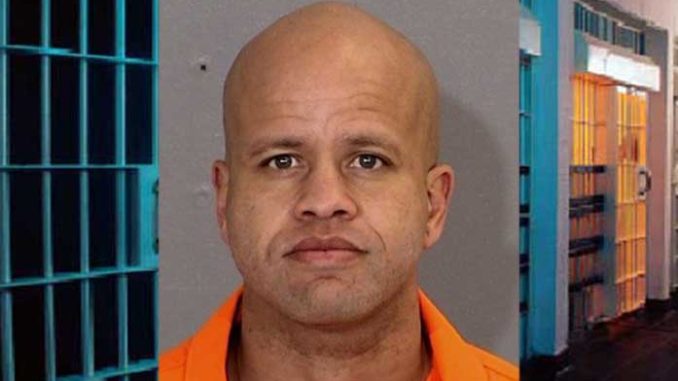
The case of a former U.S. Army sergeant serving 34 years in prison for child molestation will be considered by the Arizona Court of Appeals next week, more than two years after he was sentenced in a Cochise County courtroom.
Justin Alexander Copeland was convicted in April 2019 of 50 counts of sexual conduct with a minor after jurors heard testimony from his stepdaughter that Copeland used his hand to touch her breasts, buttocks, and genitals on multiple occasions between June 2016 to December 2017.
The girl would have been 12 and 13 at the time of the abuse. Copeland maintained his innocence at sentencing where he faced a minimum of 10 years in prison. The prosecutor with the Cochise County Attorney’s office asked for up to 80 years; Judge Laura Cardinal set on a total of 34 years.
The appeal seeks to have the jury’s verdicts and the sentence overturned, along with an order that if the prosecutor wishes to go pursue the case further they must take the case back to a grand jury for a new determination of probable cause “with reasonable particularity of time, place, and circumstances,” Sochi Orozco of the Cochise County Legal Advocate unit argues.
Orozco’s appeal brief for Copeland raises six issues, five of which the Court of Appeals will consider during oral argument on Jan. 12 over the objection of the Arizona Attorney General’s Office which is handling the appeal for the Cochise County Attorney’s Office.
In an appeal of a criminal conviction, the Court of Appeals views the evidence in the light most favorable to affirming a jury’s guilty verdicts and resolves all reasonable inferences against the defendant.
Copeland came under investigation in late 2017 after the girl spoke with a school employee about being touched. At the time the family was in turmoil due to a pending divorce while Copeland was assigned to Fort Huachuca in Sierra Vista.
During the investigation, Copeland was hospitalized after a suicide threat, much of which was documented on cellphone or policy bodycam. He also made statements to friends and Army colleagues about the abuse allegations which the prosecutor argued were confessional in nature.
The charges against Copeland contained in the grand jury indictment did not include information as to what specific sexual contact Copeland engaged in, nor when or where the incidents occurred. Instead, the incidents are listed as the first time, second time…fiftieth time.
A 51st count was added against Copeland, alleging continuous sexual abuse as an alternative for the jurors to consider. A continuous sexual abuse charge alleges a defendant engages in three or more acts of sexual conduct with a minor, sexual assault, or molestation “over a period of three months or more in duration.”
The stepdaughter testified at trial that Copeland initiated sexual contact by touching her over and under her clothing at least 250 times while the family lived in Sierra Vista, but she described only a handful of incidents. She also testified that she never touched Copeland, nor did Copeland engage in any other type of sexual activity.
The guilty verdicts did not reference any specific dates or descriptions of the molestation, noting only that Copeland “intentionally or knowingly engaged in sexual conduct with a person who was under fifteen years of age.”
The appellate brief filed on Copeland’s behalf argues a defendant has a right to know the nature of the accusations against him in order to prepare a proper defense. The vagueness of the indictment, with its lack of particularity, violated Copeland’s due process rights, Orozco argued, and therefore Counts 1 through 50 should have been stricken prior to trial.
The Arizona Attorney General’s Office filed a 56-page answer to Copeland’s appeal supporting the trial judge’s decisions and the conduct of the prosecutor.
“For these reasons, the State respectfully requests that this Court affirm Copeland’s convictions and sentences,” the brief states.
